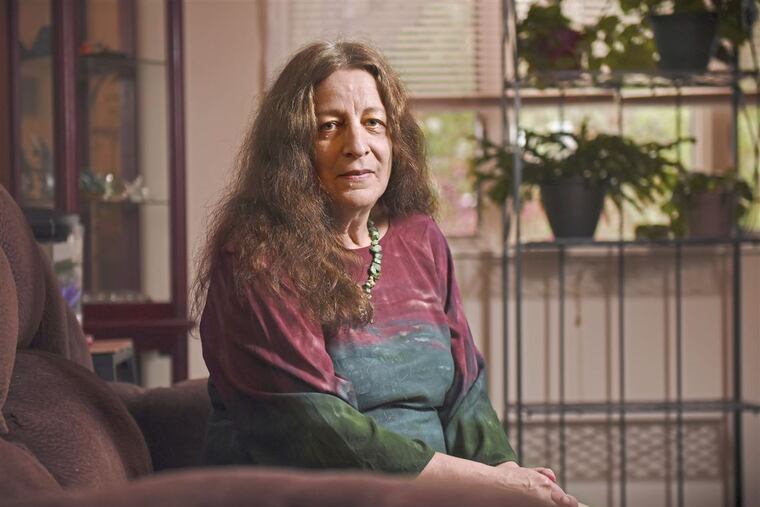A Pa. medical marijuana patient goes to court after being denied federally subsidized housing
A panel of three Pennsylvania judges will decide if the veteran has a right to Section 8 housing.

A panel of three Pennsylvania judges will hear an appeal from an impoverished disabled veteran who said she was denied federally subsidized housing solely because she is a medical marijuana patient.
Mary Cease, 68, was discharged from the U.S. Navy decades ago due to an injury that left her with metal rods in her back, PTSD, and chronic pain.
Cease became a state-approved medical marijuana patient in 2018 after she became worried about becoming addicted to her pain-killing opioids and her doctor recommended that she substitute newly state-legal cannabis for the hard prescription narcotics, her lawyer said.
“She didn’t know that decision would jeopardize her housing,” said her lawyer, Judith D. Cassel, of Hawke McKeon & Sniscak in Harrisburg.
On Thursday, Cassel’s law firm colleague, appellate lawyer Kevin McKeon, will argue the case before Commonwealth Court in Harrisburg.
Cease had been living in Section 8 housing in Wilkes Barre, but fled that city when she became a victim of domestic violence. When she applied two years ago for new federally subsidized housing in Indiana County near Pittsburgh, Cease was placed on a waiting list.
On her housing application, she admitted that she used a portion of her meager $10,000-a-year Social Security payments to pay for her medical marijuana. An Indiana County official spotted the admission and disqualified her from the program.
Under federal law, marijuana is considered a Schedule 1 substance on par with heroin and LSD.
“The [Housing Authority of Indiana County] concluded that it had no choice but to deny M. Cease housing because a U.S. Department of Housing and Urban Development guidance memo advised that if a household member is ‘illegally using a controlled substance, e.g., marijuana,’ denial is mandatory,” according to court documents filed by Cease.
A spokesperson for Housing Authority of Indiana County was not available late Wednesday afternoon to comment.
Cease previously appealed to the housing authority twice but was turned down each time.
“This case isn’t just about me,” Cease said in an interview this week with the Pittsburgh Post Gazette. “I’m setting a precedent for thousands of other people in the same situation due to bureaucratic nonsense.”
Cassel, her lawyer, said impoverished marijuana patients across the state run the risk of being shut out of subsidized housing because of their doctor-recommended medication.
“If you’re low-income or indigent, you have to go on opioids. That’s what we’re trying to get people to understand," said Cassel, who took on the case pro bono. “People shouldn’t have to choose between a roof over their head and their medication.”
At least one bill is pending in Congress that would stop the fed government from refusing housing to state-legal marijuana patients.
Cease’s appeal argues that the Pennsylvania Medical Marijuana Act prohibits discrimination for using the medicine and that the only class of people specifically prohibited from residing in federally subsidized housing is sex offenders.
It argues that the housing authority can use discretion to accommodate her. Further, it argues that her use of “medical marijuana” does not constitute the illegal use of a controlled substance because it is recognized as a medicine by the State of Pennsylvania.
Cassel said her client, who prefers to vape her medicine, has no criminal record.
“[The housing authority is] not even complaining about smoke,” Cassel said. “Yet my client would gladly change consumption formats. Vape is not smoke, but they’ve never argued about that.
"Their sole argument against her is that marijuana is illegal under federal law.”